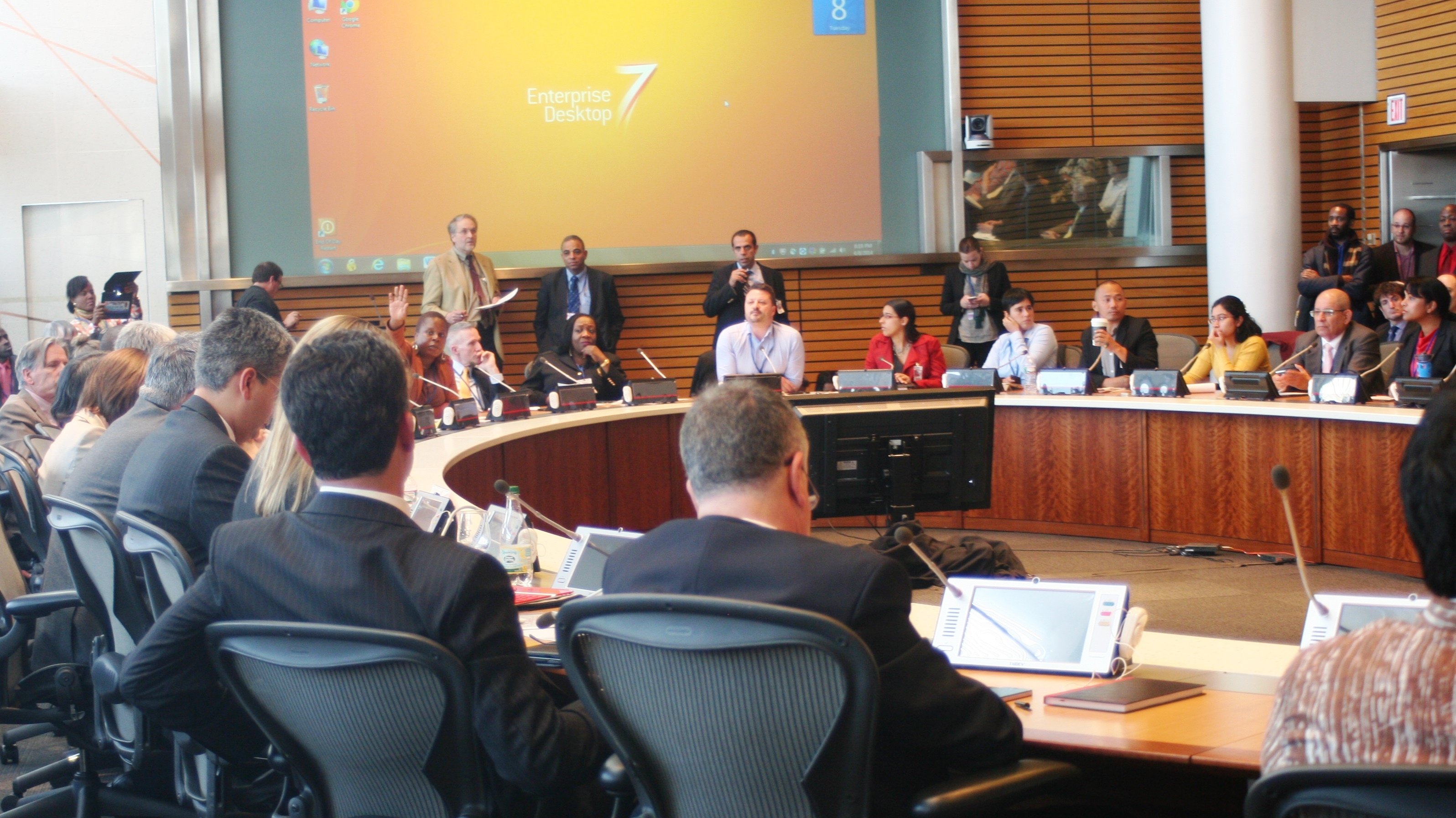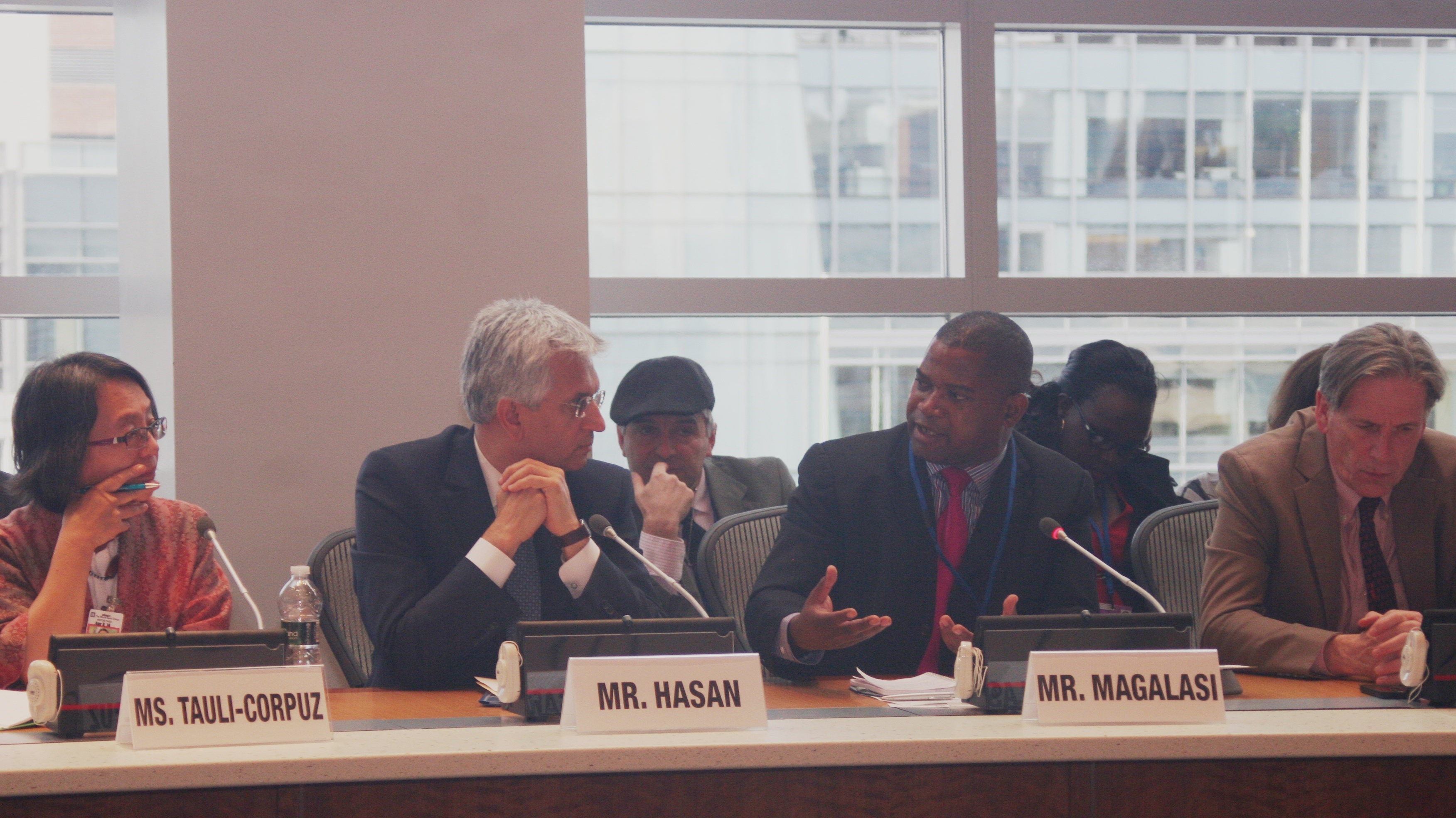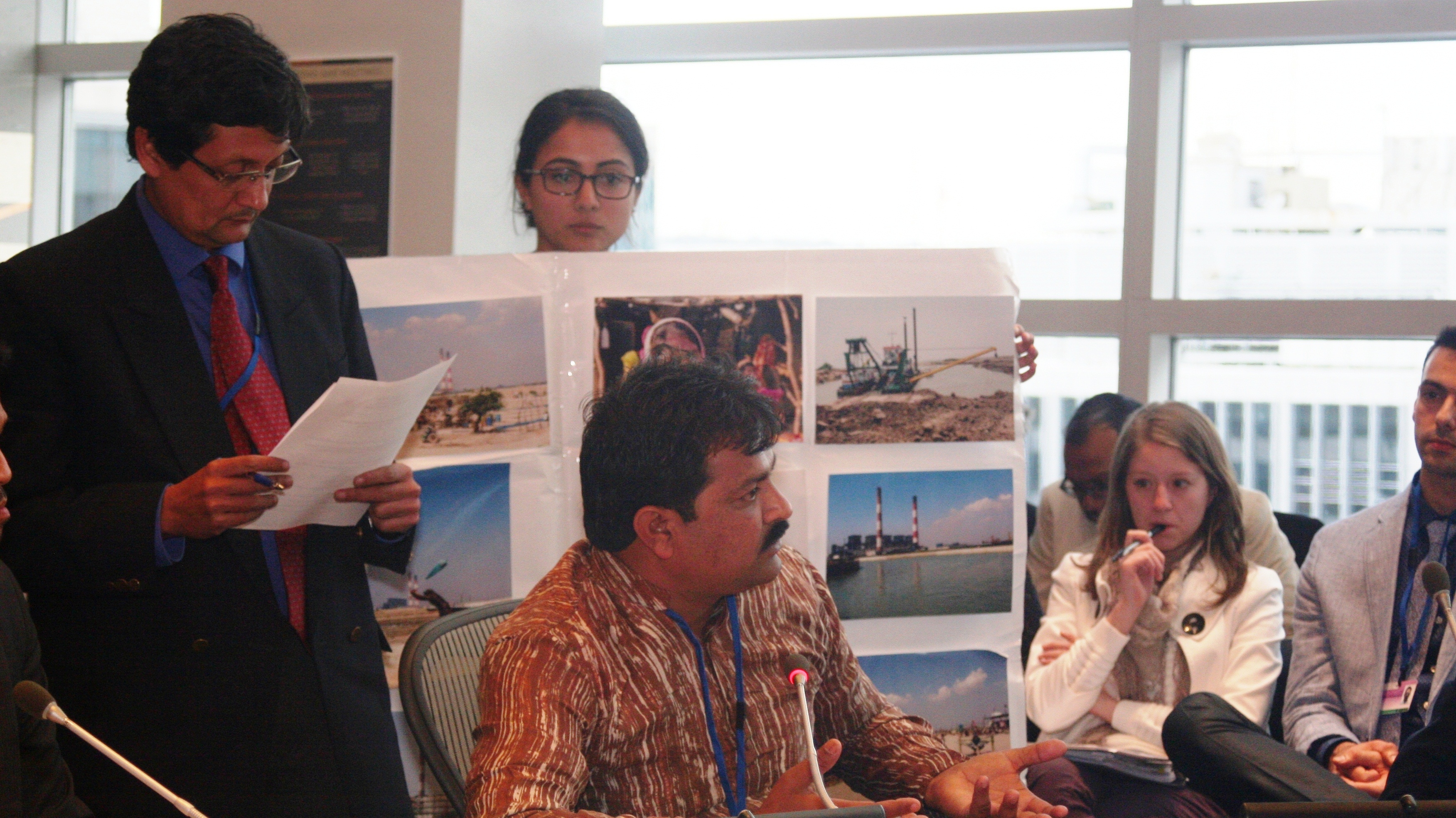The Spring Meetings Civil Society Roundtable with Executive Directors was held on Tuesday April 8, 2014. These policy discussions have been held since 2011 and are geared to promoting policy dialogue on a wide range of issues between World Bank Group Executive Directors (EDs) and Civil Society Organization (CSO) representatives attending the Spring and Annual Meetings. Some 120 CSO representatives participated, together with 12 Executive Directors (or Alternates) and Advisors from the following countries: Algeria, Brazil, Canada, Finland, France, Germany, Italy, Kuwait, Netherland, Russian Federation, Saudi Arabia, Solomon Islands, Switzerland, and the United States. Topics covered during the meeting included human rights, the ongoing safeguards review, inclusion of sexual minorities, and the impacts of several specific WBG-funded projects. The roundtable was chaired by Mr. Merza Hasan (ED for Kuwait and other Middle East countries and Dean of the Board) and Victoria Tauli Corpuz (Director of the Indigenous Peoples’ International Centre for Policy Research / TEBTEBBA in the Philippines). Two discussants were asked to make initial comments: Ms. Sara Aviel (Alternate ED for the United States), and Mr. Collins Magalasi (Executive Director of the African Forum and Network on Debt and Development / AFRODAD in Zimbabwe).
Mr. Hasan opened the meeting by welcoming the participants, introducing the EDs, and reiterating how important this policy dialogue is for informing EDs on CSO concerns and ideas for improving the development effectiveness of the WBG investments. He provided an update on efforts by ED offices to enhance their websites in response to a letter received from numerous CSOs. He also announced that a new web platform is being introduced that will make it easier for ED offices to share information on staff and policy positions. Ms. Corpuz followed by thanking the EDs for their participation and expressed her appreciation for continuing practice of meeting with CSOs during the Spring and Annual Meetings. She noted that such a candid exchange of views and ideas helps to strengthen the knowledge and capacity of CSOs to engage with the WBG, as well as improve their role in promoting sustainable development at both the country and global levels.
Ms. Aviel spoke next and emphasized that the WBG’s new Citizens Engagement framework is a key priority for the institution as it has the potential to be a transformative tool in terms of improving development outcomes and increasing governments’ accountability to their citizens. She also spoke about the significant steps being taken to reform the WBG in terms of organizational structure, budgeting, and staffing in order to better position it to meet its dual goals of ending poverty and promoting shared prosperity. Mr. Magalasi noted that he has been engaging the WBG for many years and has noticed steady improvements in the quality of the dialogue with civil society, as well as with some of its accountability instruments such as the Inspection Panel. He mentioned several ongoing projects in Guatemala, India, and Kenya which are being perceived by CSOs as having negative impacts on local populations and/or the environment and expressed hope that this meeting would allow for a fruitful dialogue on them. He emphasized that CSOs would also be interested in understanding better how the WBG uses staff incentives to promote improved results and what the impact has been of IFC’s growing tendency to use financial intermediaries to promote development.
When the floor was opened for discussion, CSO representatives brought up a number of issues. Several CSO representatives asked the EDs about the ongoing safeguards review process, and whether the World Bank would incorporate human rights and gender equity into its updated standards. Another asked about whether the revised safeguard standards would strengthen the Bank’s work in the areas of forest conservation and climate change in such places as Indonesia. Several CSO representatives brought up the issues of accessibility and affordability associated with IFC-funded private sector water projects in the Philippines and India. An LGBT activist asked what steps the WBG was taken to address growing levels of homophobia in some countries and whether it was ready to include sexual minorities in its policies on social inclusion. Several questions were also raised about why the IFC continues to support the expansion of India’s Tata Mundra Power Plant project when there is evidence of performance standards violations and harm being experienced by local fishing communities.



